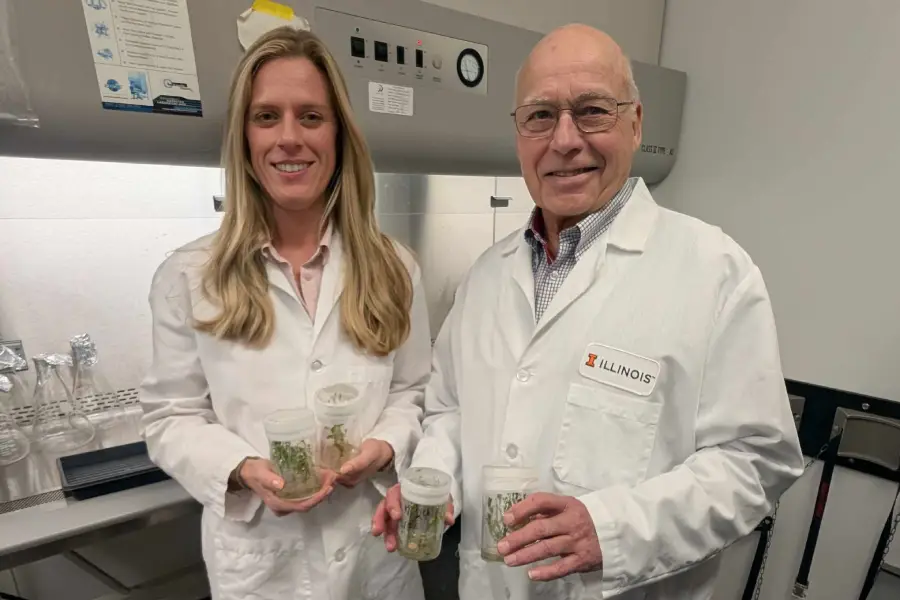Batatas resistentes ao calor apresentam aumento de rendimento de 30%

Pesquisadores da Universidade de Illinois desenvolveram uma batata geneticamente modificada que apresenta maior resistência ao calor extremo, produzindo 30% mais massa de tubérculo em condições de ondas de calor. Essa inovação oferece possíveis benefícios para a segurança alimentar em regiões onde o aumento das temperaturas globais tem prejudicado significativamente a produção agrícola. Os trabalho foi liderado por Katherine Meacham-Hensold como parte do projeto Realizing Increased Photosynthetic Efficiency (RIPE), uma iniciativa internacional voltada para o aprimoramento da fotossíntese das culturas para melhorar a produção de alimentos. De acordo com Meacham-Hensold, esses avanços são essenciais para atender às crescentes demandas de alimentos nas áreas mais afetadas pelas mudanças climáticas.
O avanço envolve o enfrentamento dos desafios da fotorrespiração, um processo que pode reduzir a produtividade das culturas em até 40%, desviando a energia do crescimento para metabolizar subprodutos tóxicos. Esse problema se torna mais acentuado em altas temperaturas, quando a enzima Rubisco reage com mais frequência com o oxigênio em vez do dióxido de carbono, sobrecarregando ainda mais os recursos energéticos da planta. Para combater isso, os pesquisadores introduziram dois genes - glicolato desidrogenase e malato sintase - na via fotossintética da batata. Essas modificações permitiram que a planta metabolizasse os subprodutos nocivos diretamente nos cloroplastos, conservando a energia e melhorando a eficiência do crescimento.
Os testes de campo revelaram resultados significativos durante a estação de crescimento de 2022, que passou por várias ondas de calor com temperaturas superiores a 35 °C (95 °F) e picos acima de 38 °C (100 °F). Apesar dessas condições extremas, as batatas modificadas produziram rendimentos substancialmente maiores do que suas contrapartes sem engenharia, destacando sua maior termotolerância e eficiência fotossintética aprimorada. A pesquisa, publicada recentemente na Biologia das mudanças globaisAlém disso, o estudo da Bayer CropScience confirmou que essas modificações genéticas não afetaram a qualidade nutricional da batata, garantindo que os ganhos de produtividade não comprometam o valor dos alimentos.
Embora essas descobertas sejam promissoras, os pesquisadores enfatizam a necessidade de mais testes de campo em vários locais para avaliar o desempenho das batatas projetadas em diversos ambientes. O sucesso com as batatas poderia abrir caminho para inovações semelhantes em outras culturas de raízes, como a mandioca, uma fonte de alimento essencial na África Subsaariana, onde se espera que o aumento das temperaturas tenha impactos significativos.


Respostas